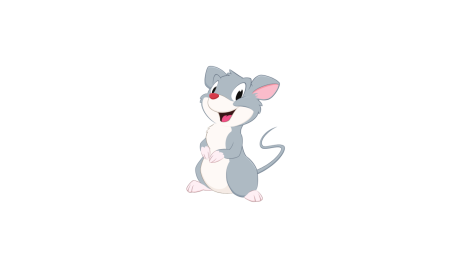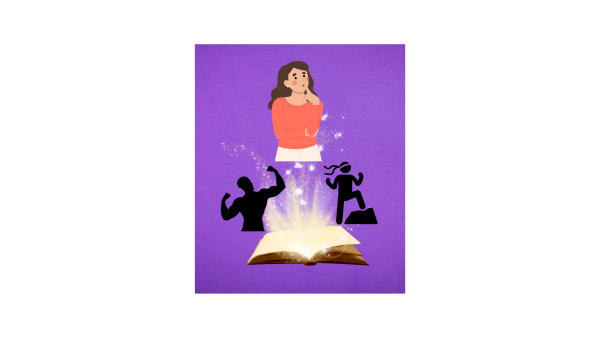Live-action adaptations: Why do we watch them?
All fans can enjoy and appreciate the attention to the original source material when watching a live-action adaptation film.
From comic books to novels to video games, live-action adaptations have become more popularized in the film industry as digital technology improves. Popular media franchises, such as Disney, Marvel, and DC have pushed adaptations into the limelight. However, adaptation films are more of a hit-or-miss since not all media genres adapt well to live-action, and one of the biggest weaknesses is how much a film sticks to the source material. Everyone has at least once been on the two compelling sides when watching a live-action adaptation– a new viewer who is unfamiliar with the franchise, or a fan who is already anticipating the film. Any fan would want the story they grew up with to be told the way they remember; we come back for remakes, sequels, and prequels for that sense of nostalgia.
We continue to watch adapted live-action films because we can put ourselves in the place of the characters since we view the movie with another human rather than a drawing. We continue watching because we are familiar with the plot we’ve seen before, and we use cinema entertainment to escape reality. People watch their favorite movies repeatedly because it brings comfort and a sense of familiarity; the same can be applied to live-action adaptations.
The reputation of live-action films is judged based on the following factors: popular media franchises, featured actors/actresses, genre, representation, CGI, and special effects. Any of these factors can be the downfall of an adapted film.
Buzzfeed journalist and MCHS alumnus Anthony Robledo explains that live-action adaptations often have the issue of trying to change the source material; it gives the fanbase something to look forward to, but if the film backfires because it ignored source material, it can give a bad reputation for the media franchise and their fans.
“[Live-action adaptations are] not giving enough thought into what makes the original material good, it capitalizes on it,” Robledo said.
Often adaptations struggle with using either too much or too little of the original source material. Some media franchises create good movies, but it brings along remakes and follow-up films that often do not do as well as the original.
Film Club advisor Edward Valenzuela explains the importance of faithfulness to the source material with adaptations and how an original story can get lost within the handful of remakes that follow a good live-action adaptation.
“[It should] try to interpret the best that the author intended. By not sticking to the original, you think the new one is something new. Something with films today is that there are not a lot of original stories. Sometimes there’s quirky stories, but the best example would be Shakespeare’s ‘Romeo and Juliet.’ It has been interpreted a bunch of different ways, maybe too much; sometimes it looks like an original when it’s not,” Valenzuela said.
Films continue to have an issue with knowing how much of the original is enough and when a popular franchise should stop having remakes. Sticking to the source material is usually the easiest way to go when making an adaptation because fans return for nostalgia, and new fans invest in the story, especially if the original fans are praising the adapted remake.
An online article called “Breaking the Curse of the Video Game to Film Adaptation“ says that even bad adaptations are fan favorites: “[Some adaptation films] gained a cult-following for their cheesiness and 90’s aesthetics, they are generally considered guilty pleasures rather than genuinely good films.”
“[Adaptations should focus on how to] bring more attention to the story in general. The original fans are a huge audience that already cares about the original work,” Robledo said.
An example of this, through a video-game-to-live-action adaptation is “Resident Evil.” The original film series consisted of six movies revolving around the main character apart from the games. The reboot can be summed up as only catering to fans and the TV series had little connection to the original games.
Live-action adapted movies should be faithful to connect to the original works. It should bring something new to the table for pre-existing fans, but should not try too hard to be something else and ignore the original story.
When it comes to any live-action adaptation, what appeals to some viewers will not appeal to everyone. Original fans should be the main audience to appease since they know what makes the original media great.
A popular example of this is the recent live-action adaptation, “The Last of Us.” Robledo explained how the adapted TV series turns the video game into something new, both for fans and new viewers.
“Certain aspects [in ‘The Last of Us’] wouldn’t be suitable to make the same because a show is meant to be more emotional and a game is meant to be more action-heavy. A movie is harder to adapt because you have to give up certain stuff. [With] television you have more room to take it slow,” Robledo said.
TV series are the best approach to the source material because it gives more time for the characters and the story to be fleshed out; that way more people are intrigued with each episode. A leading contributor is the use of streaming services, which makes it easier to binge movies and shows, especially mainstream TV.
Live-action adaptations differ from their original story because it brings something new to the audience. Lots of special effects are not a requirement for good live-action adaptations. Many fail to realize a good adaptation makes a viewer resonate with the characters and their story. People already fans of the franchise have something new to analyze and incoming fans can be hooked into the story more with the use of emotional and real-life components. The most important aspect adaptations should always consider is if people care for the film and the story.

My favorite song is Everlong by Foo Fighters, I like sans, and I can kind of play bass.














